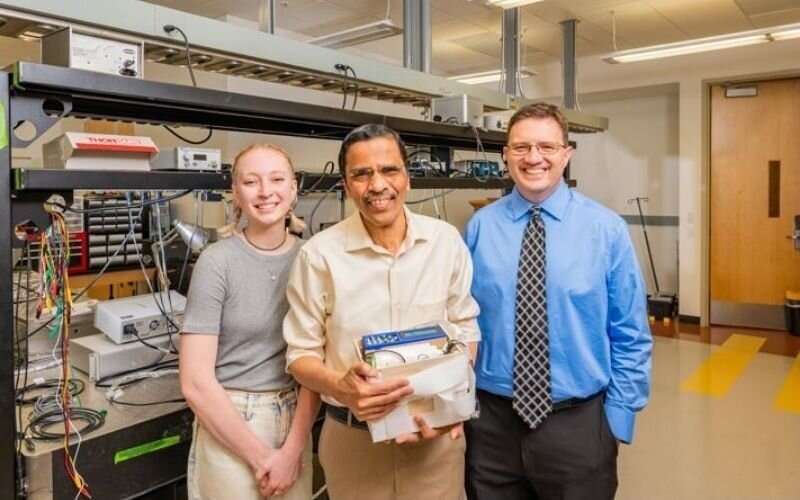Wearable device could reduce racial disparities in blood measurements


Bioengineers and scientists at The University of Texas at Arlington, in collaboration with Austin’s Shani Biotechnologies, LLC, have developed a new noninvasive technology that may help real-time monitoring of key blood parameters, such as hemoglobin, especially in Black patients.
George Alexandrakis, bioengineering associate professor, said the idea is to develop a wearable device, such as a watch or a monitor, “that would read the blood through the skin.”
Most currently available methods for monitoring hemoglobin require blood samples and expensive equipment. The available noninvasive spectroscopic methods have a high degree of variability and often are inaccurate in people of color due to differences in skin melanin. There is a significant unmet need for a reliable, noninvasive device to estimate hemoglobin, irrespective of skin color, he said.
The device relies on the spectroscopic properties of hemoglobin in the blue-green light spectra, as opposed to the red-infrared spectra currently used in similar devices. The device is easy to use, utilizing a probe that is placed on the skin and measures reflected light from the skin, Alexandrakis said.
The UTA team is led by Alexandrakis, an internationally recognized expert in the field of biomedical optics, and Sanjay Gokhale, a medical scientist in Alexandrakis’ lab whose research focuses on spectroscopic properties of adult and fetal hemoglobin.
In collaboration with Michael Nelson, associate professor of kinesiology at UTA, the team evaluated the novel device in more than 30 participants. They compared the hemoglobin values measured by the device to those measured by currently available point-of-care devices, as well as through standard blood tests. Preliminary results suggest the device can estimate hemoglobin with better accuracy and consistency than currently available comparable methods.
Alexandrakis said a follow-up study will involve patients in Arlington hospitals.
Vinoop Daggubati, MD, CEO of Shani Biotechnologies, LLC, an Austin-based biotechnology sponsor, recently spoke about the device at the 16th annual meeting of the Texas Center for Health Disparities’ Community Approaches to Health Equity Conference and said the results are promising.
Source: Read Full Article